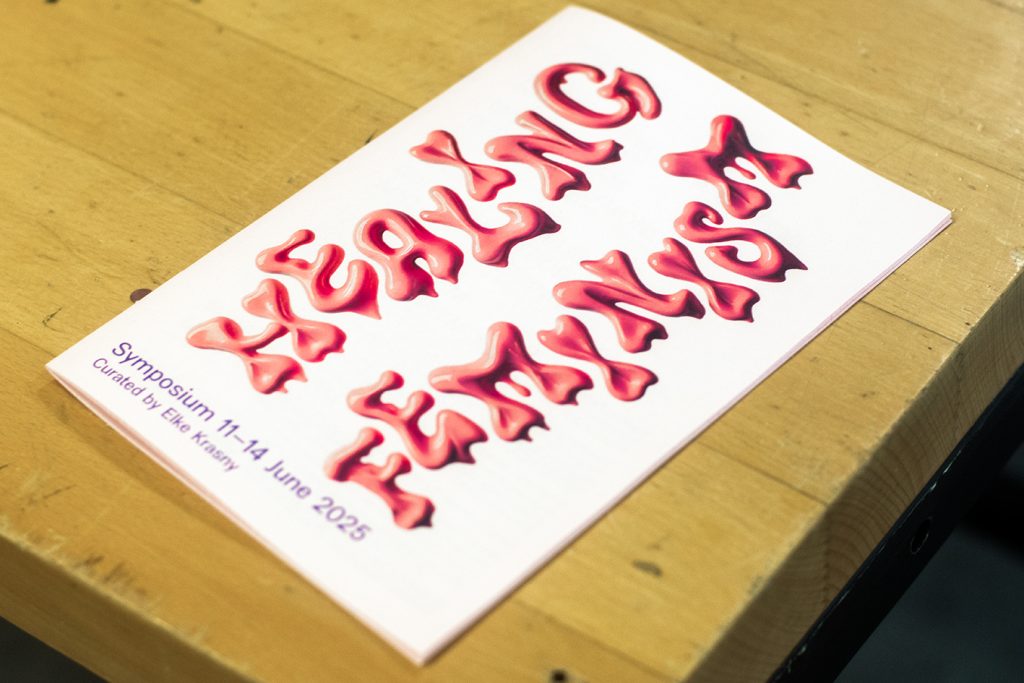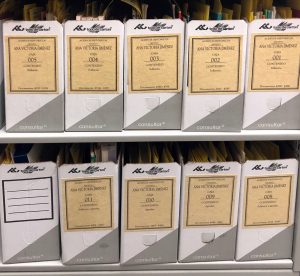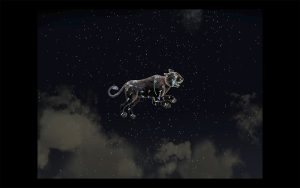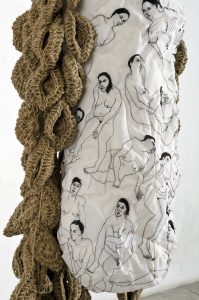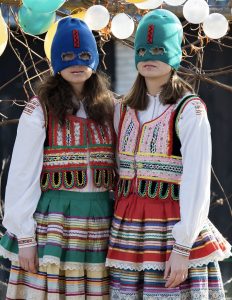Special Coverage from the Healing Feminism Symposium, Reporting from Vienna | Our correspondent Lorena Tabares is covering the Healing Feminism symposium for INES_Magazina, a gathering curated by Elke Krasny that weaves together feminist practices beyond linear time and geographic borders.
June 14
We anticipate this visual report will have a second installment in a more extensive article on Inés Magazina’s website. For now, we present a few notes on the final day of the Healing Feminism symposium, held on June 14.
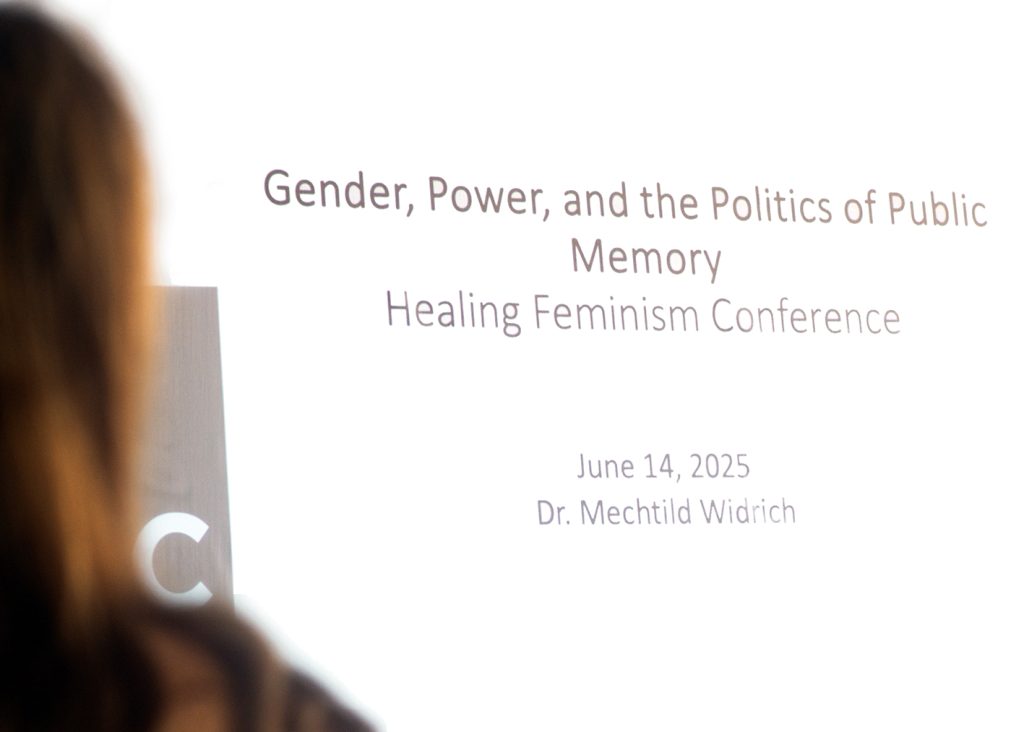
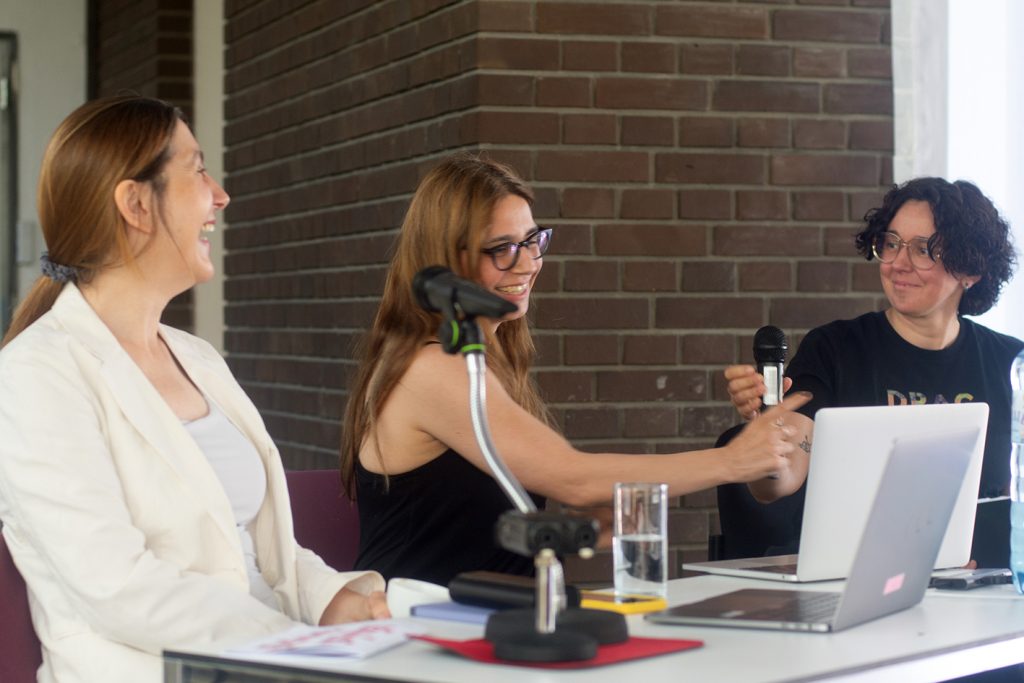
Talk by Mechtild Widrich . Photo Lorena Tabares
Throughout the day, Mechtild Widrich, author and scholar at the School of the Art Institute of Chicago, revisited the subtle aspects of commemorative practices grounded in ephemeral, durational, and performative gestures. These, in turn, highlight the social ecologies within contested territories, articulating trajectories that move from the skin to the earth’s crust between the intimate and the public, the transition from de-ruralization to urbanization, or between colonial models of natural reserve appropriation and the establishment of large-scale institutions and monuments. The starting point for this exploration was the performative iterations of Emilio Rojas in The Grass is Always Greener and/or Twice Stolen Land (2014) and Ana Lupaş in Humid Installation (1970).
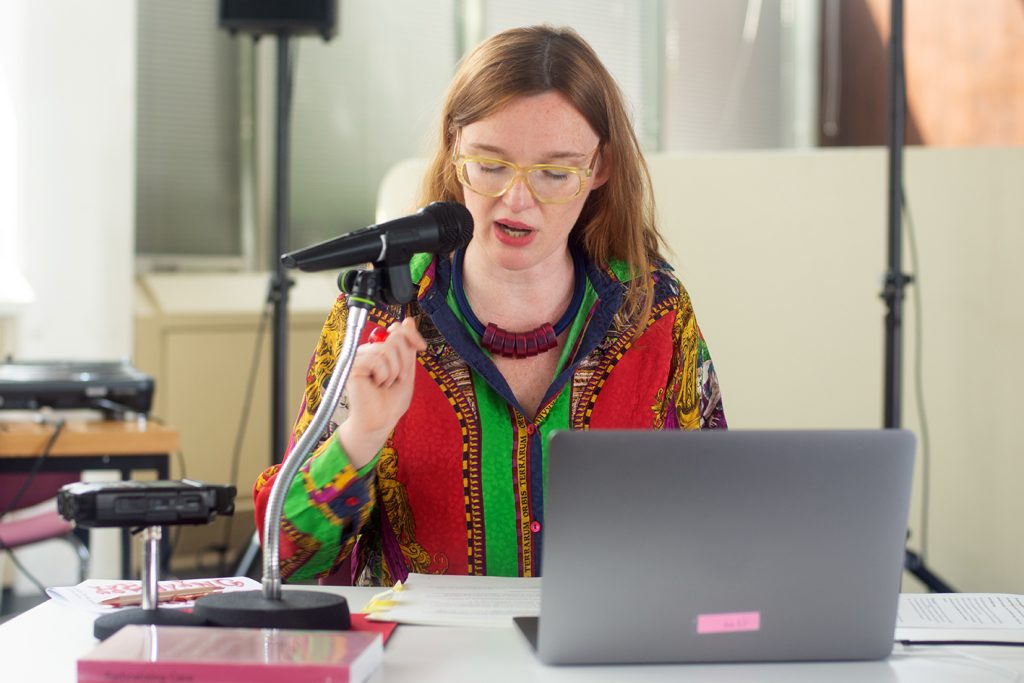
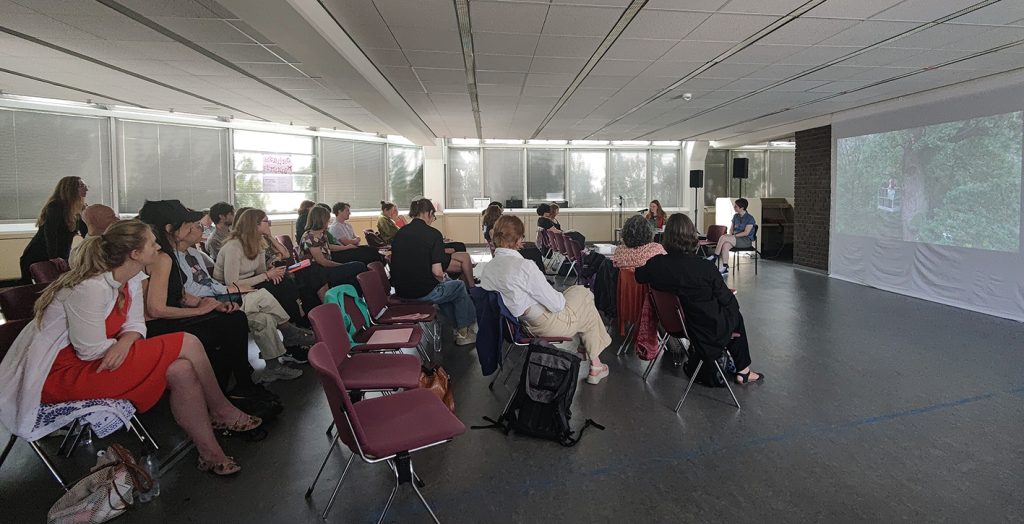
Talk by Natalia Romik . Photo Lorena Tabares
Natalia Romik, artist, designer, and practicing architect, presented a transnational research project across the region of former Eastern Europe focused on post-Jewish memory architecture. The Nomadic Shtetl Archive transforms a mobile and nomadic room into an installation and exhibition, housing, among other things, maps, photographs, and personal archives. Later, Romik and a team of anthropologists and paleographers worked on the anthropological reconstruction of material objects and architecture from sites identified as underground shelters for Jewish communities. These objects, covered in silver foil, form the exhibition titled The Architecture of Survival (2024).
June 13
Our coverage of the Healing Feminism symposium, curated by Elke Krasny, continues.
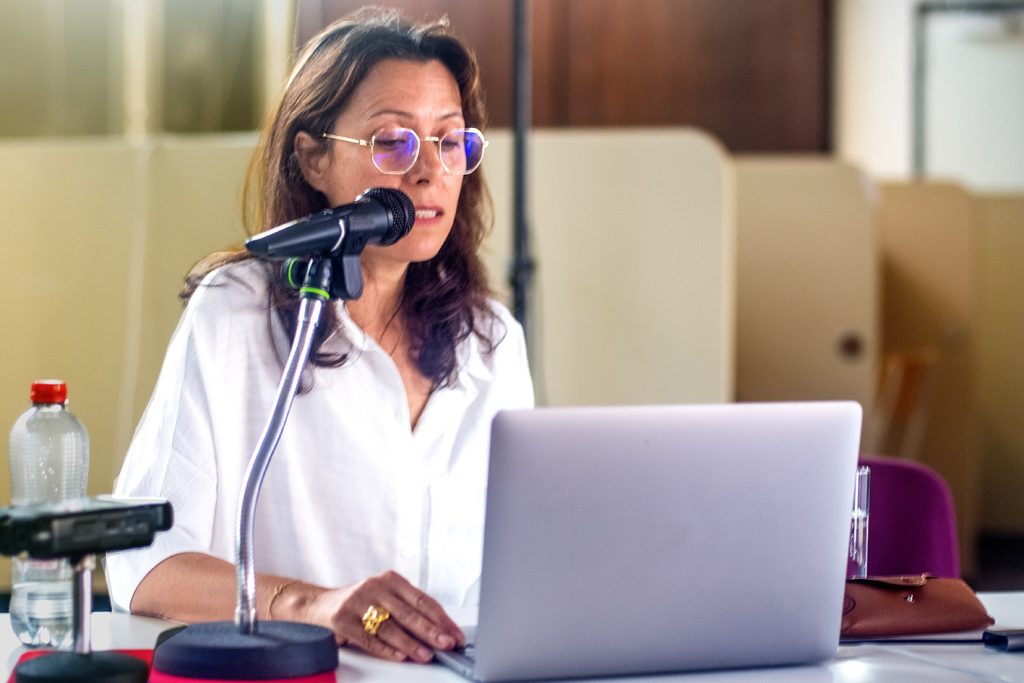
Malkit Shoshan (Keynote speaker). Photo Lorena Tabares
On the third day, keynote speaker Malkit Shoshan, co-founder and director of the Dutch-based think tank FAST (Foundation for Achieving Seamless Territory), offered a compelling intervention on the role of architecture and design in spaces marked by displacement, colonization, and border instability.
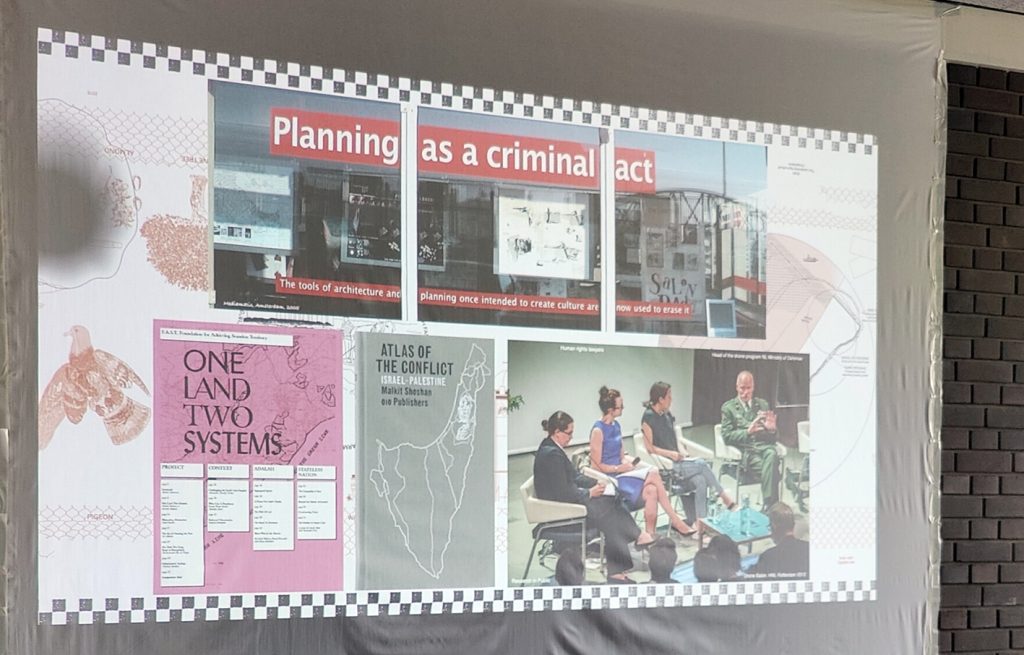
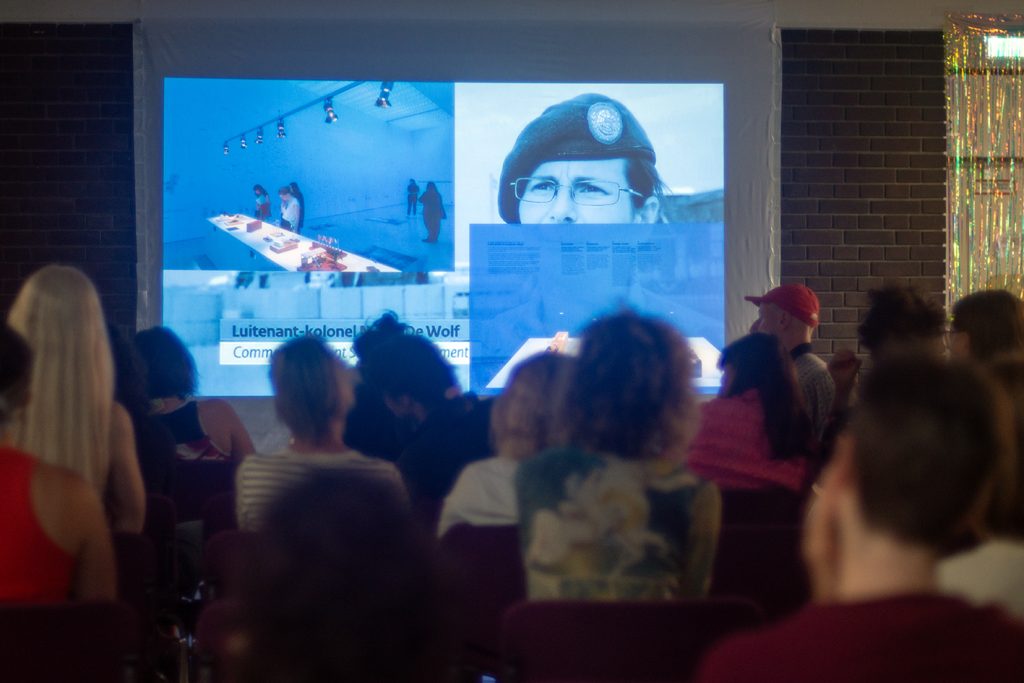
Drawing from her extensive work, Blue (2016–2023), Atlas of the Conflict: Israel–Palestine (2012), and Border Ecologies and the Gaza Strip (2022), Shoshan called for a rethinking of institutional structures and the design of collective spaces in contexts of socio-political rupture. Her research challenges the visibility and consequences of so-called “peace operations” in cities such as Monrovia, Mali, and Kosovo, where international interventions often disrupt local continuity and community cohesion.
Through her work, Shoshan invites us into zones of social liminality, spaces shaped by cultural dislocation, material transformation, and the urgent search for habitability. She shows how design can open up new possibilities for being together.
Her reflections also pressed on the colonial logic of mapping, calling attention to the ghosted geographies of refugee camps, ghost towns, hybrid cities, ma’abarot, and border checkpoints. In tracking these topographies, she unearths the spectral presence of forced migrations and spatial expropriations, evidence of histories still shaping the present.
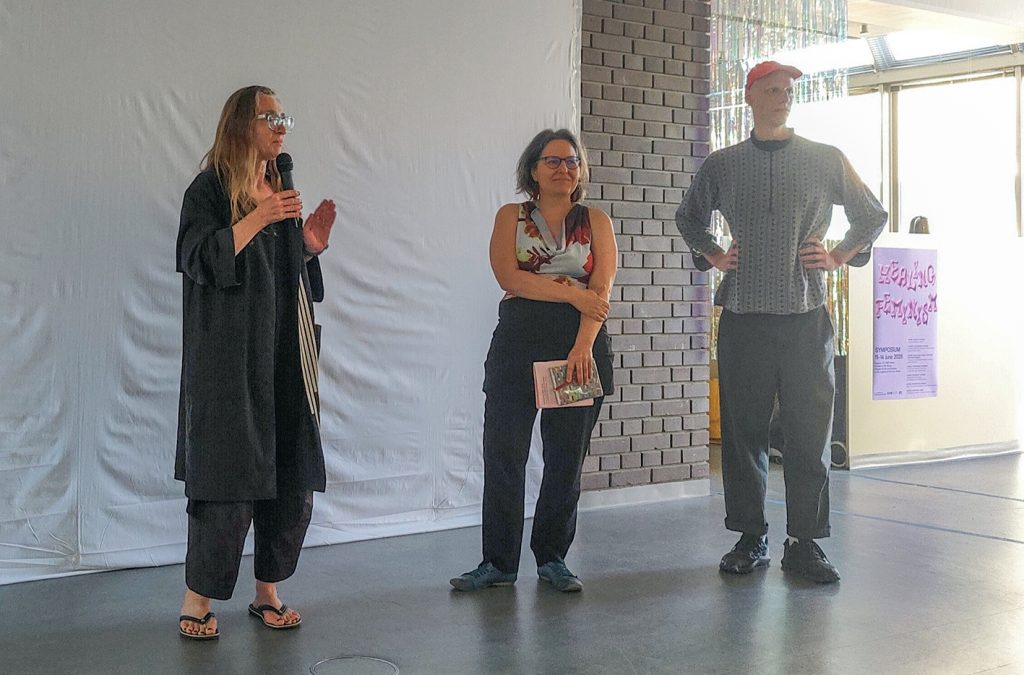
June 12
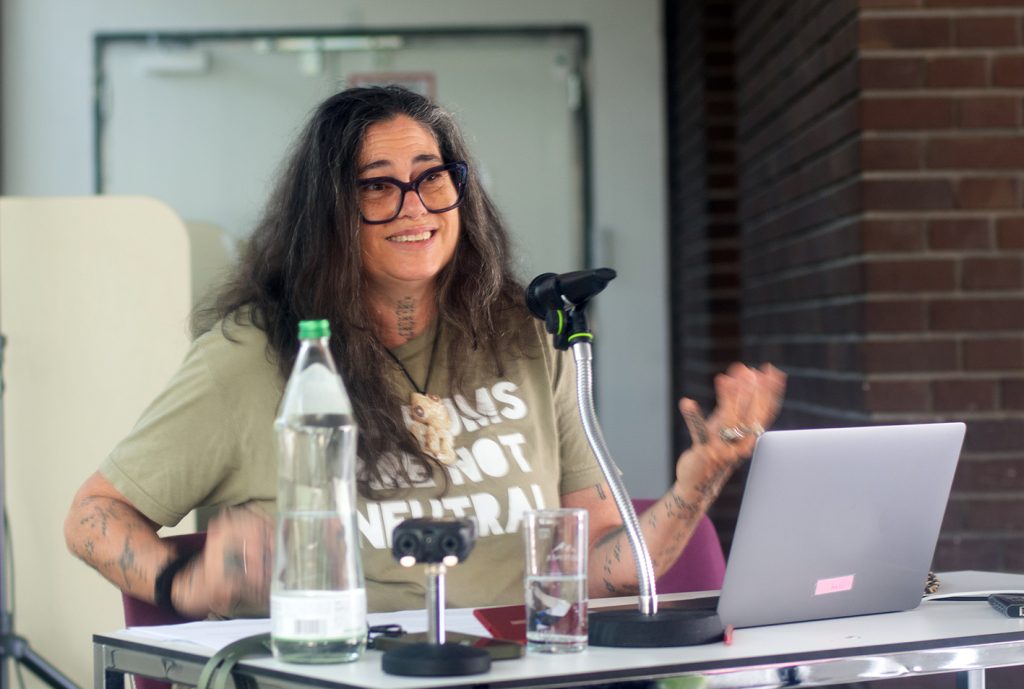
Rosanna Raymond keynote speaker. Photo Credit Lorena Tabares
New Zealand artist Rosanna Raymond takes us on a permeable oceanic journey through a dual presentation for the Healing Feminism symposium. Raymond engages in epistemic practices that renew past-present spaces. For over thirty years, Raymond has breathed life into practices of “re‑Moanafication,” through which she advocates for re-centering Moana identities, perspectives, and knowledge systems.
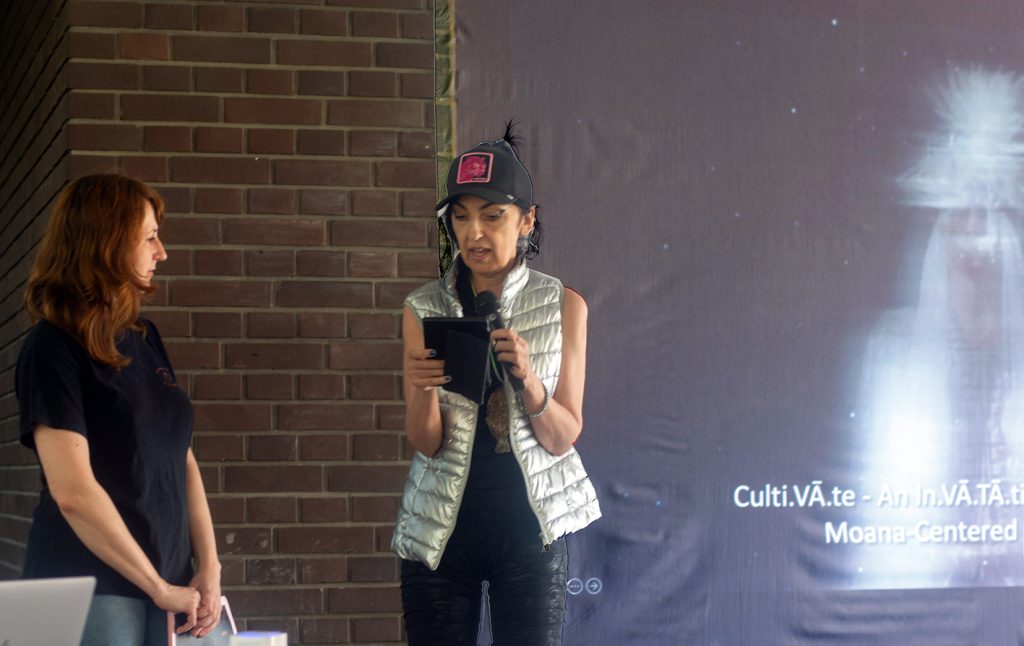
Joulia Strauss (guest artist) and Claudia Lomoschitz (Academy of Fine Arts, Vienna). Photo Credit Lorena Tabares
In her first intervention, we traced her extensive artistic and activist trajectory as a Pacific Sisters collective founding member since the early 1990s. We engaged in dialogue about the curation and co-production of Pasifika Styles, a pioneering experiment in vital activation and preservation with fifteen artists inside the Museum of Archaeology and Anthropology at Cambridge. We also revisited some of her mythopoetic appearances, such as her reinterpretation of Aolele, the caretaker of the clouds, a cosmological and divine figure the artist has reactivated on multiple occasions (1996, 2018). For Raymond, bringing indigenous instruments and artifacts to life within museums is a way to ignite the portability of memory and cultural repertoires and to safeguard their existence within the communities to whom these elements truly belong.
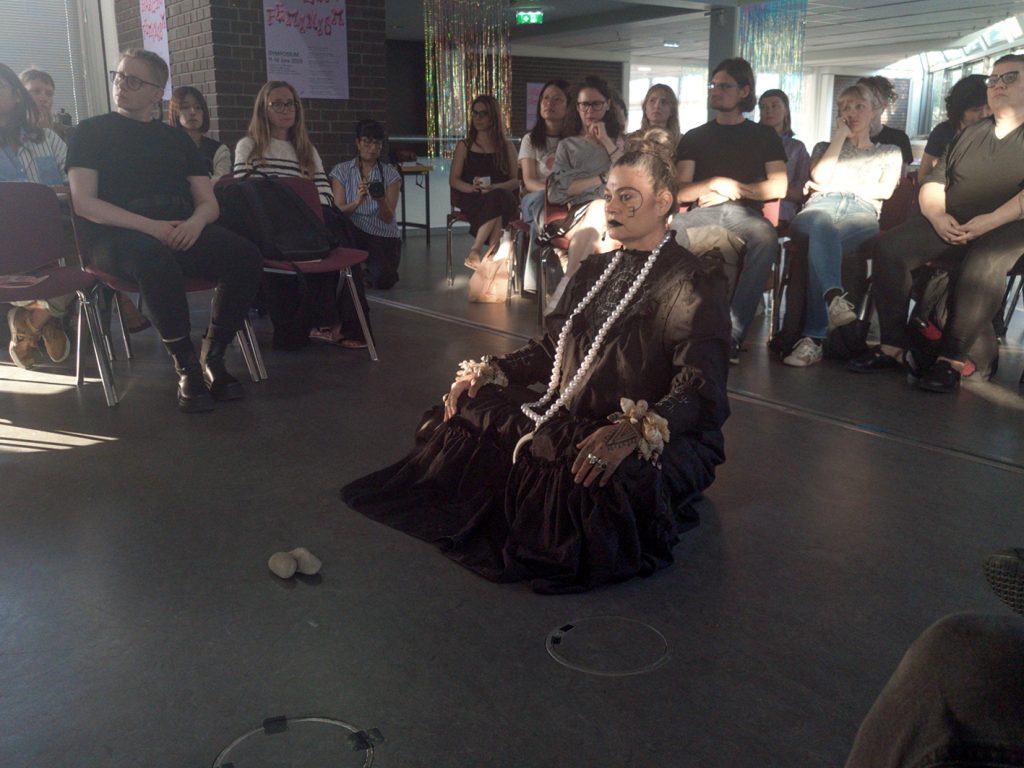
Rosanna Raymond’s performance, presented during the Healing Feminism conference in collaboration with WIENWOCHE. Photo Credit Lorena Tabares
In the performance Running Out of Breath, we gathered in a ceremony of convergence within the embodied practice of the Vā, a spatial and enveloping matter of coexisting, multitemporal relationships. Within it circulate the sounds of germination, memory, trauma, and legacies of resistance. This encircling and cohabitative proposition is guided by Rosanna herself, a female figure dressed in black, adorned with shell and stone bracelets on her hands and arms, infused with the scent of the sea. Through these, her body reverberates and echoes the vitality of times past in resistance to forgetfulness and symbolic and social appropriation, particularly of the peoples of the Moana Nui region, the Polynesian name for the Pacific Ocean.
We honor the memory of Teresia Teaiwa and the ocean within us.
Performance by Rosanna Raymond as part of the Healing Feminism conference in collaboration with WIENWOCHE.
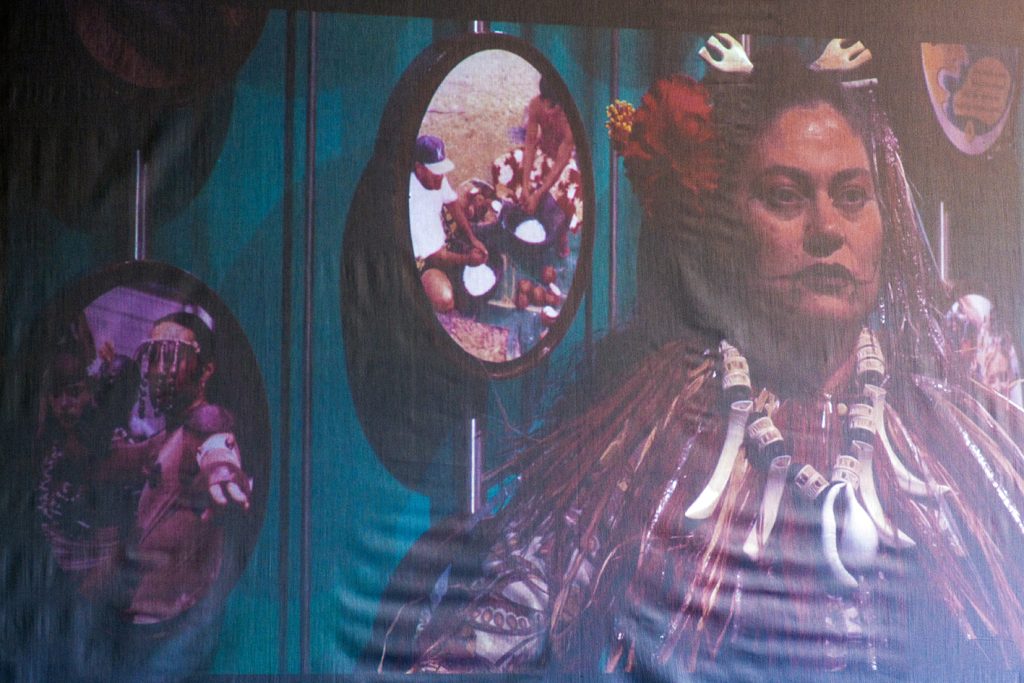
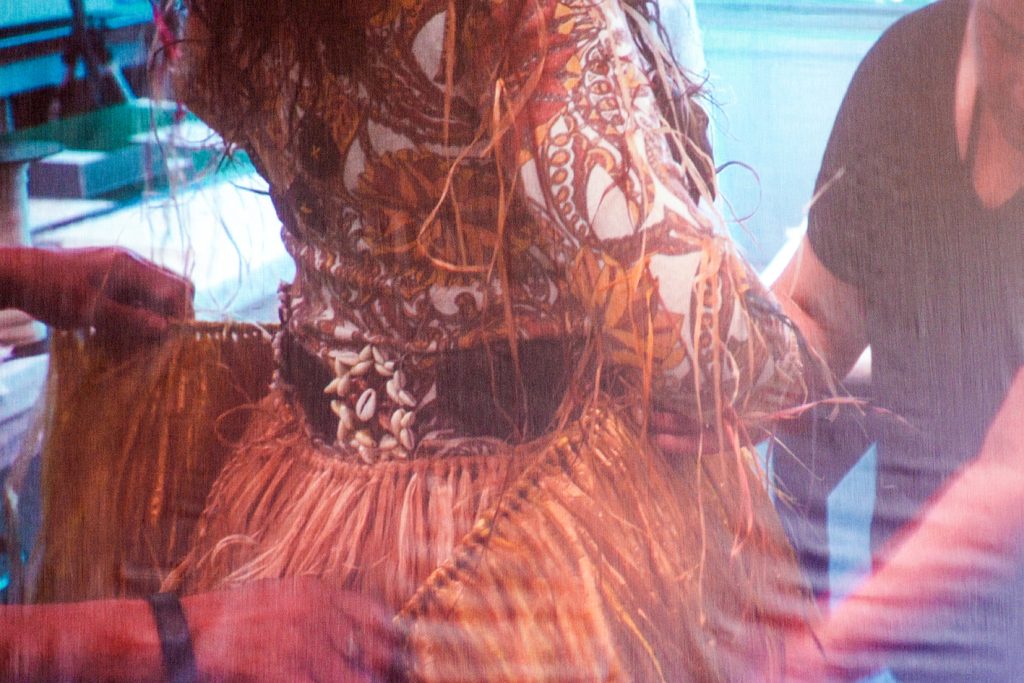
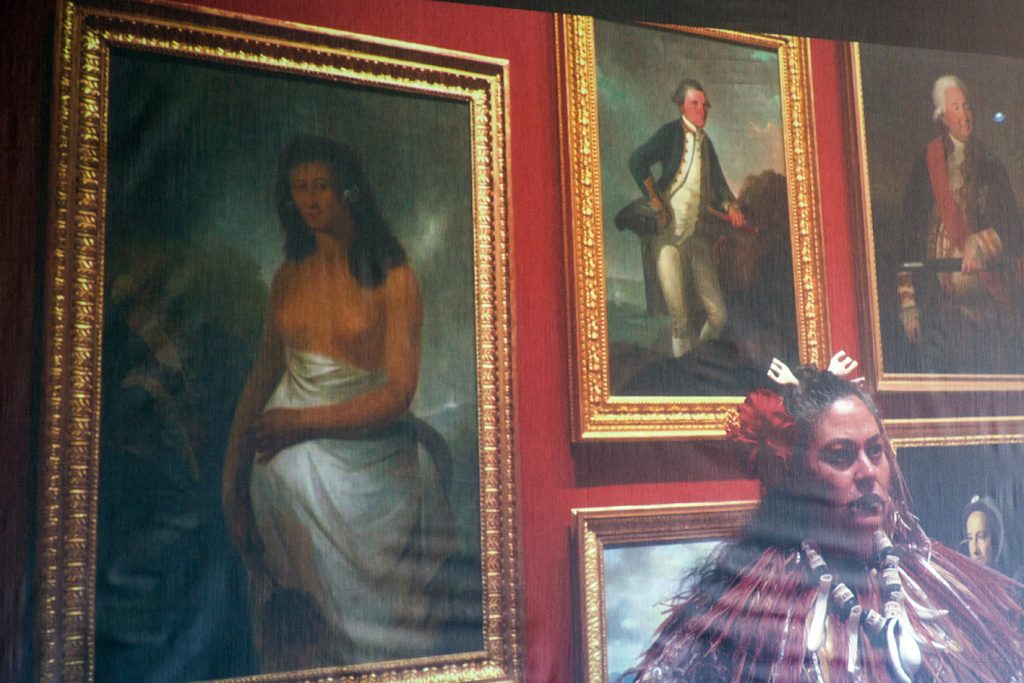
Rosanna Raymond’s performance Documentation
June 11
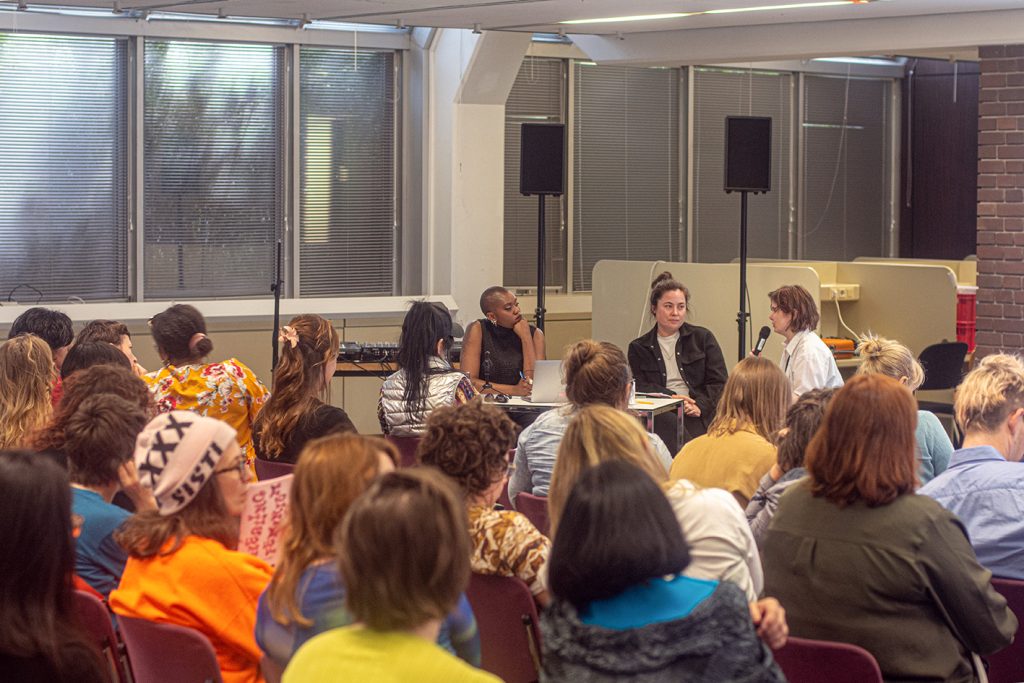
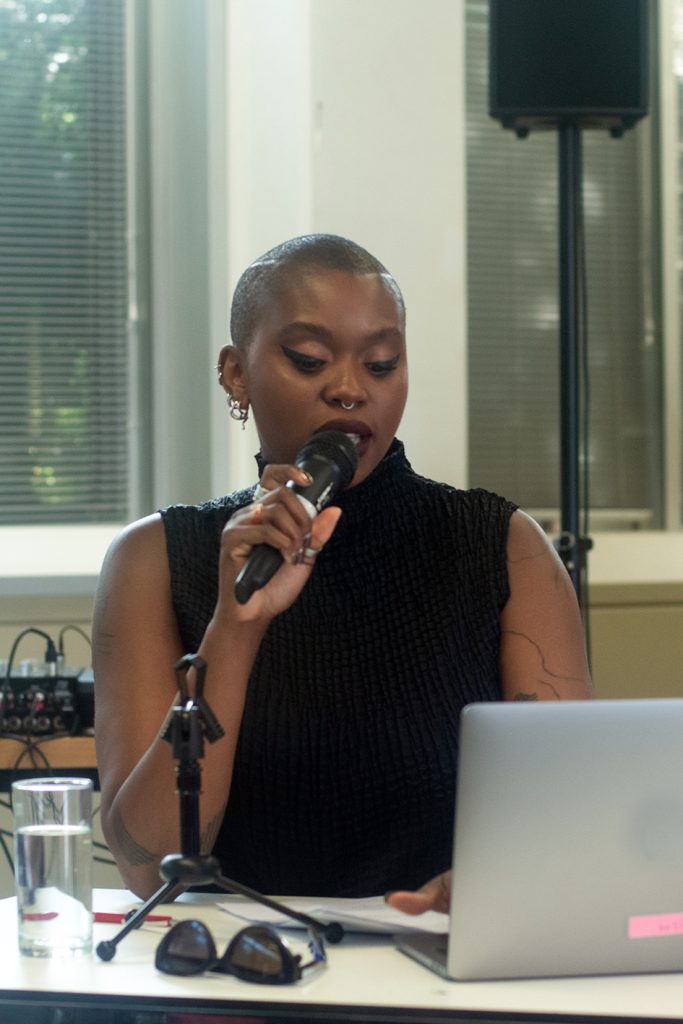
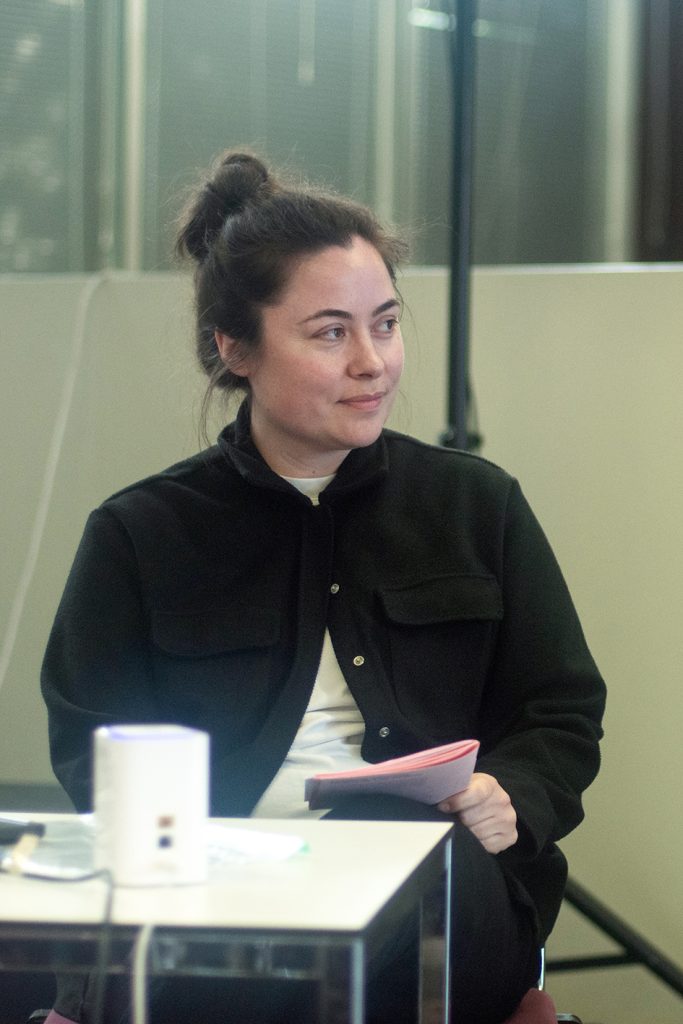
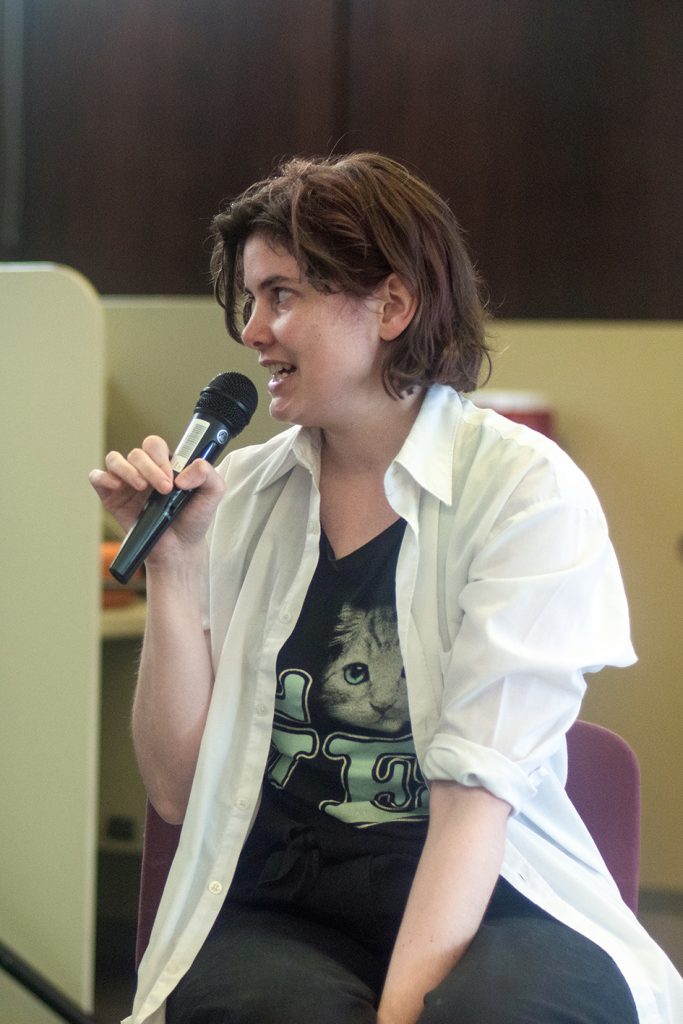
Lola Olufemi – keynote speaker, PHD candidates: Janna Lichter (PhD student Bauhaus University Weimar) and Sophie Lingg (PhD students at Akademie der Bildenden Künste) Photos Lorena Tabares
Featured a reading by Lola Olufemi, author of Imagining Otherwise, who invited us to think of imagination as a political force: a way to dismantle fascism, challenge the linearity of time, and reframe feminized labor. Through poetry, writing, and archival work, Olufemi explored the struggles of Black women workers in Britain, including the work of Silvia Rilke and a powerful collective of women across London and other regions.
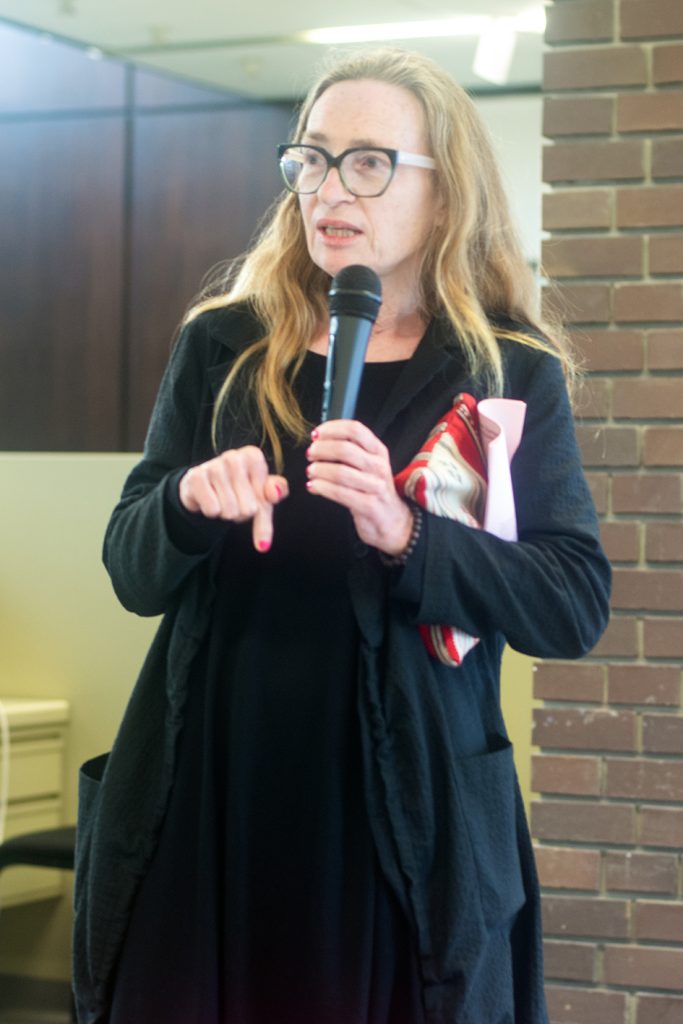
Elke Krasny, symposium curator. Photo Lorena Tabares
The symposium Healing Feminism, organized by Elke Krasny, scholar, curator, and professor at the Academy of Fine Arts Vienna, brings together feminist practices that transcend conventional chronological and geographical frameworks. Over four days, contributions from Lola Olufemi, Rosanna Raymond, Lis-Mari Gurák Hjortfors, Karin Reisinger, Malkit Shoshan, Mechtild Widrich, and Natalie Romik intertwine with dialogues involving PhD students. Krasny positions (queer) feminism as an antidote to patriarchal, colonial, and fascist structures, inviting us to reimagine social relations and confront the scars of trauma—in bodies, materials, and the earth itself.
